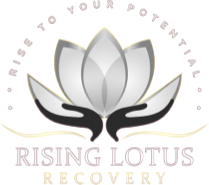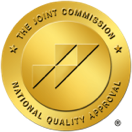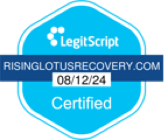Overview:
- Understanding the most challenging addictions to overcome is crucial for individuals seeking recovery.
- The top 10 hardest addictions to break and provides insights into how to overcome them.
Addiction is a complex and challenging condition that affects millions of people worldwide. While some addictions may seem easier to overcome than others, certain substances and behaviors pose significant hurdles for individuals seeking recovery. Understanding the hardest addictions to break can provide valuable insight into the recovery process and help individuals navigate their journey to sobriety.
| Addiction | Withdrawal Severity | Relapse Risk | Typical Treatment Approach |
|---|---|---|---|
| Opioids (Heroin, Painkillers) | Very High | Very High | Medical detox, Medication-Assisted Treatment (MAT), therapy |
| Alcohol | High | High | Medical detox, behavioral therapy, support groups |
| Nicotine | Moderate | High | Nicotine replacement, counseling, behavioral therapy |
| Methamphetamine | Moderate to High | Very High | Behavioral therapy, long-term rehab, dual diagnosis care |
| Cocaine | Moderate | High | Therapy, relapse prevention programs |
| Benzodiazepines (Xanax, Valium) | Very High | High | Gradual taper, medical supervision, cognitive therapy |
| Prescription Stimulants | Moderate | Moderate | CBT, medication management, holistic therapy |
| Cannabis | Low to Moderate | Moderate | Behavioral therapy, mindfulness training |
| Gambling | N/A | High | Cognitive Behavioral Therapy (CBT), financial counseling |
| Sex & Porn Addiction | N/A | High | Therapy, trauma-informed care, support groups |
1. Opioids (Prescription Painkillers & Heroin)
Why it’s hard to quit: Intense withdrawal symptoms, high relapse rates, and severe cravings.
Treatment options: Medically supervised detox, Medication-Assisted Treatment (MAT), therapy, and relapse prevention planning. According to the National Institute on Drug Abuse (NIDA), opioid overdose deaths continue to rise, highlighting the urgent need for effective treatment options.
2. Alcohol
Why it’s hard to quit: Social acceptance, availability, and dangerous withdrawal symptoms like seizures or DTs.
Treatment options: Inpatient detox, behavioral therapy (CBT, DBT), peer support, and relapse prevention.
According to the National Institute on Alcohol Abuse and Alcoholism, excessive alcohol use is responsible for approximately 178,000 deaths in the United States each year.
3. Nicotine
Why it’s hard to quit: Highly addictive, often tied to daily habits and stress relief.
Treatment options: Nicotine replacement therapy, mindfulness, and behavioral modification programs.
4. Methamphetamine
Why it’s hard to quit: Strong psychological dependency, lasting dopamine damage, intense cravings.
Treatment options: Behavioral therapy, long-term rehab programs, dual diagnosis support.
The long-term effects of methamphetamine abuse on the brain and body can complicate the recovery process and increase the risk of relapse.
5. Cocaine
Why it’s hard to quit: Short high followed by emotional crashes; high relapse risk.
Treatment options: Therapy to address emotional triggers, relapse prevention, and structured care.
Cocaine addiction can have devastating effects on individuals and their loved ones. The powerful stimulant properties of cocaine can lead to compulsive use and a cycle of addiction that is challenging to break. Seeking professional treatment is essential for overcoming cocaine addiction and preventing relapse.
6. Benzodiazepines (e.g., Xanax, Valium)
Why it’s hard to quit: Physical dependency, dangerous withdrawal, cognitive decline.
Treatment options: Gradual tapering under medical supervision, individual therapy, holistic support.
Benzodiazepine addiction, often resulting from prescription misuse or abuse, can be extremely difficult to overcome due to the severity of withdrawal symptoms. Medical supervision and gradual tapering of the medication are often necessary to safely detox from benzodiazepines and manage withdrawal symptoms.
7. Prescription Stimulants (e.g., Adderall, Ritalin)
Why it’s hard to quit: Often used for performance or energy, leading to misuse and dependence.
Treatment options: CBT, medication management, support groups, and holistic therapy.
8. Cannabis
Why it’s hard to quit: Emotional dependence, especially with daily or high-potency use.
Treatment options: Behavioral therapy, lifestyle changes, mindfulness training.
9. Gambling Addiction
Why it’s hard to quit: Triggers the same reward centers as drugs; emotional highs and lows.
Treatment options: Therapy (CBT), financial counseling, group support (e.g., Gamblers Anonymous).
10. Sex & Porn Addiction
Why it’s hard to quit: Deep ties to emotional regulation, shame, and isolation.
Treatment options: Therapy, trauma work, group support, and boundary-setting tools.
Why These Addictions Are So Difficult
Many addictions affect brain chemistry, especially dopamine and serotonin, making it hard to feel normal without the substance or behavior. Others are reinforced by social, emotional, or lifestyle factors that require behavioral and environmental change.
Addiction is not just a willpower issue—it’s a chronic condition that requires medical, emotional, and psychological support to heal.
How Rising Lotus Recovery Can Help
We specialize in treating complex addictions with personalized care plans, including:
- Medically supervised detox
- Residential & outpatient rehab
- Therapy (CBT, DBT, trauma-informed care)
- Mindfulness, BrainTap therapy, and life skills training
- Dual diagnosis treatment for co-occurring mental health conditions
If you or someone you know is struggling with addiction, don’t hesitate to reach out for help. Rising Lotus is here to support you on your journey to recovery. Call 866-868-0014 today to speak with a compassionate and experienced team member and take the first step towards a healthier, addiction-free life.




























